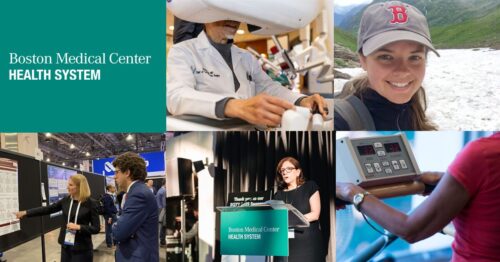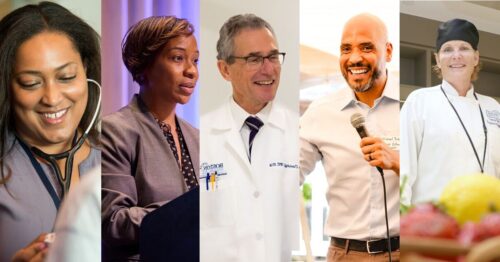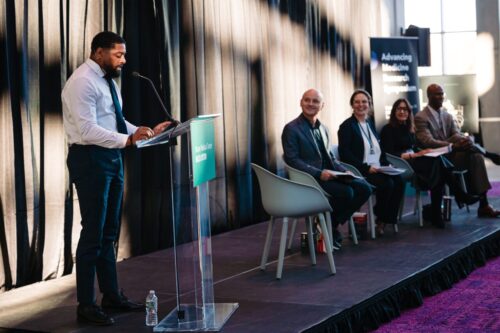After a neighborhood shooting brought a Boston man to the emergency room, a job training program opened a door to a new career.
A neighborhood shooting in 2015 left Ekilisandro Teixeira in need of serious care. Wanting to avoid the attention of the authorities, he didn’t go to the hospital until several days later, at which point doctors found a bullet still lodged and visible in his thigh.
As a 20-something Cape Verdean man living in one of Boston’s rougher neighborhoods, gun violence was just another part of life for Eki. For the staff at Boston Medical Center, where Teixeira was ultimately treated for his gunshot wound, his admission to the hospital was an opportunity for change.
Soon after being admitted, Teixeira was introduced to team members from the Violence Intervention Advocacy Program (VIAP). The program, born out of the hospital’s department of emergency medicine, connects case workers with victims of violence to identify and address the root causes of what brings them to the ER.
“The majority of the population we serve are young, black, African-American males,” says David Wiley, Teixeira’s case manager. “When we start working with them, we start trying to figure out what led them to the point where they ended up here in the hospital with these sorts of injuries. We’re working with people with multiple layers of trauma.”
BMC’s Violence Intervention Advocacy Program
VIAP helps people recover from the physical and emotional trauma of violence by empowering them with skills, services, and opportunities. By addressing gaps in financial literacy, mental health, housing, and job skills, among other factors, VIAP participants can make positive changes in their lives, support others affected by violence, and contribute to building safer and healthier communities.
“We’re working with people with multiple layers of trauma.”
– David Wiley, VIAP case manager
“When someone comes in, you have to understand, how did this happen, what would it take for this to never happen again?” says Thea James, MD, founder of VIAP and vice president of mission at BMC. “We don’t often think about how and why people got here, and when you don’t think about that, you end up setting really low bars. You just have to set higher bars for what’s possible — for any human being to achieve. If it’s not the same as what’s possible for you and your children, then it’s not the right thing.”
Beyond providing access to resources, an important part of the work VIAP does comes down to building confidence and reimagining self-concept. Just three years after the shooting that first brought him to BMC, Teixeira graduated from MSIMBO, a coding academy run by the Urban League of Eastern Massachusetts and underwritten by Google. Despite the diploma in his hand, he struggled to fully comprehend his own accomplishments.
“It wasn’t us doing this, it was all you doing it,” Wiley recalls telling Teixieira at the MSIMBO graduation. “I couldn’t have graduated [for you]. You’re the one who did it and graduated.”
Today, Teixiera puts his MSIMBO training to good use coding websites for local social-impact organizations.
“When you set higher bars for what’s possible, it becomes a self-fulfilling prophecy,” says James.


